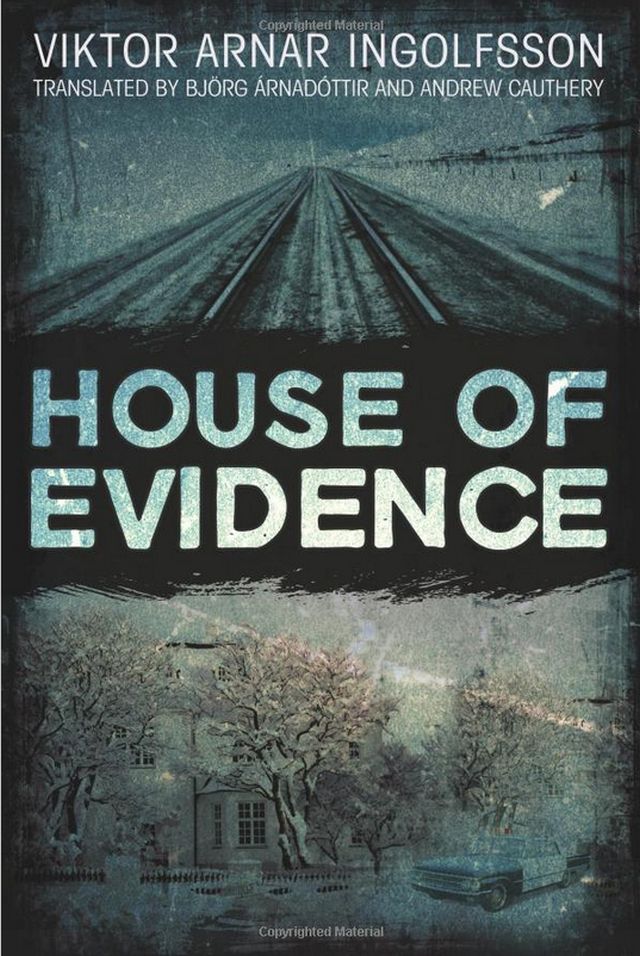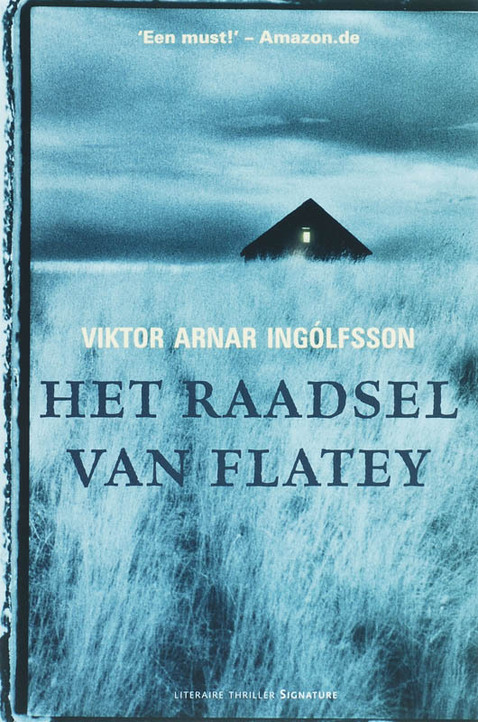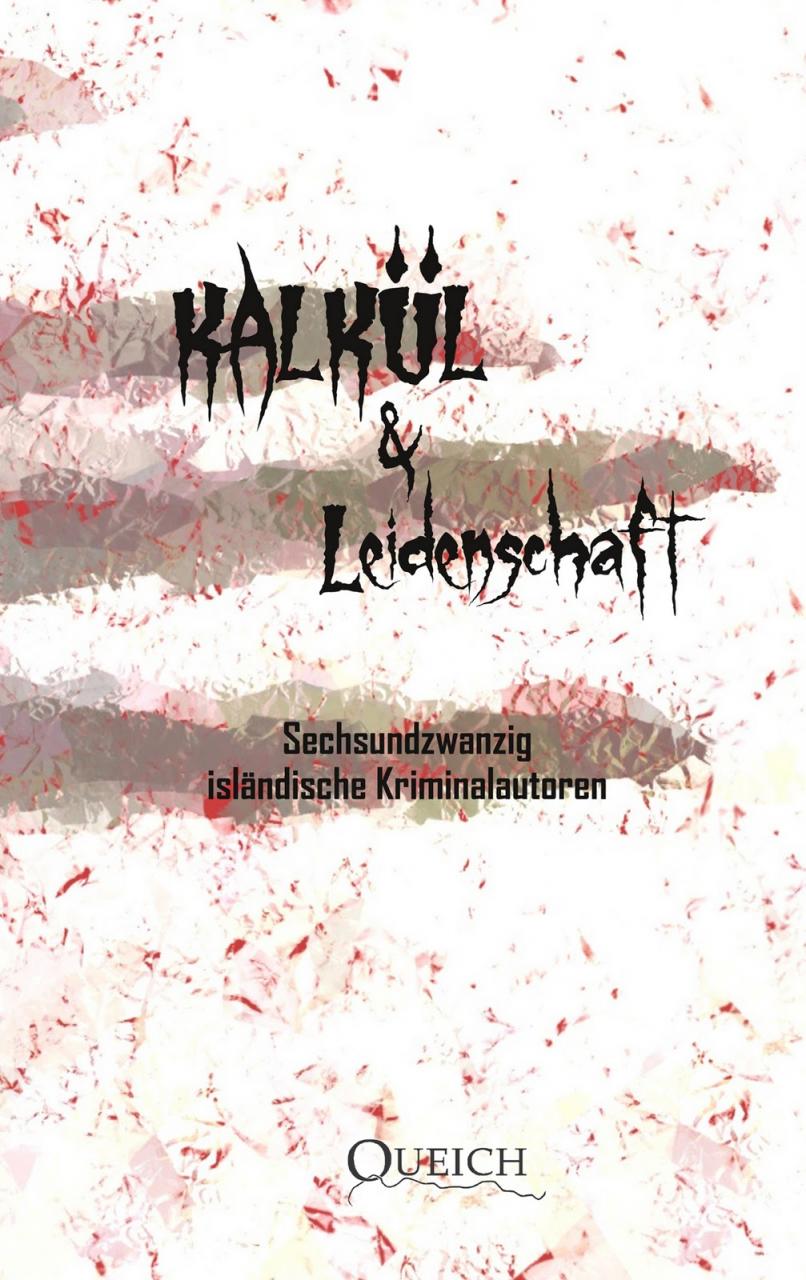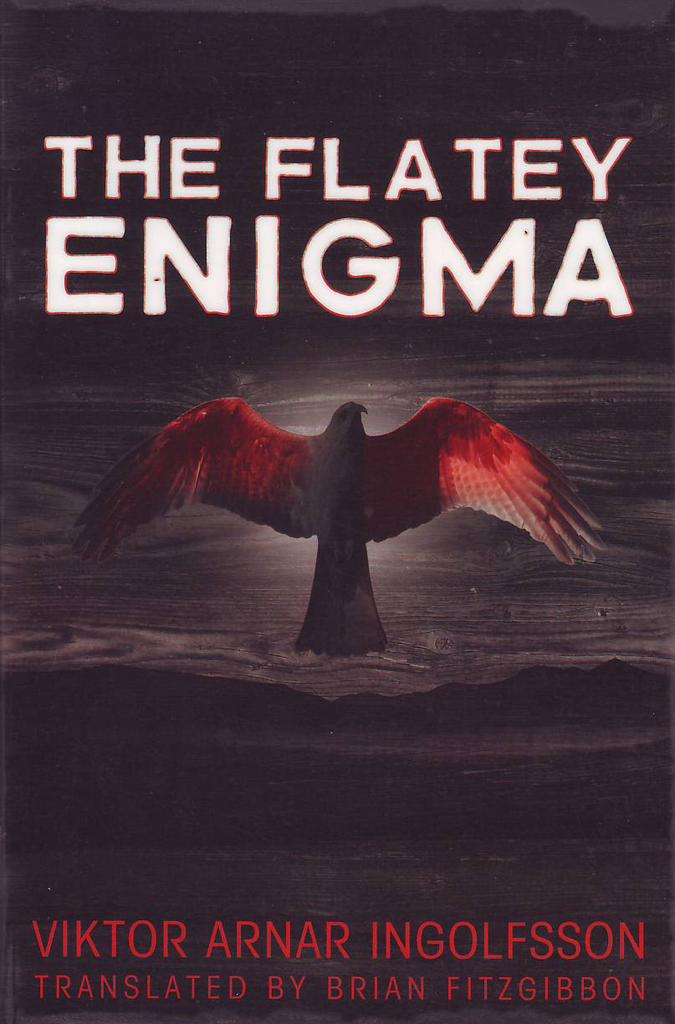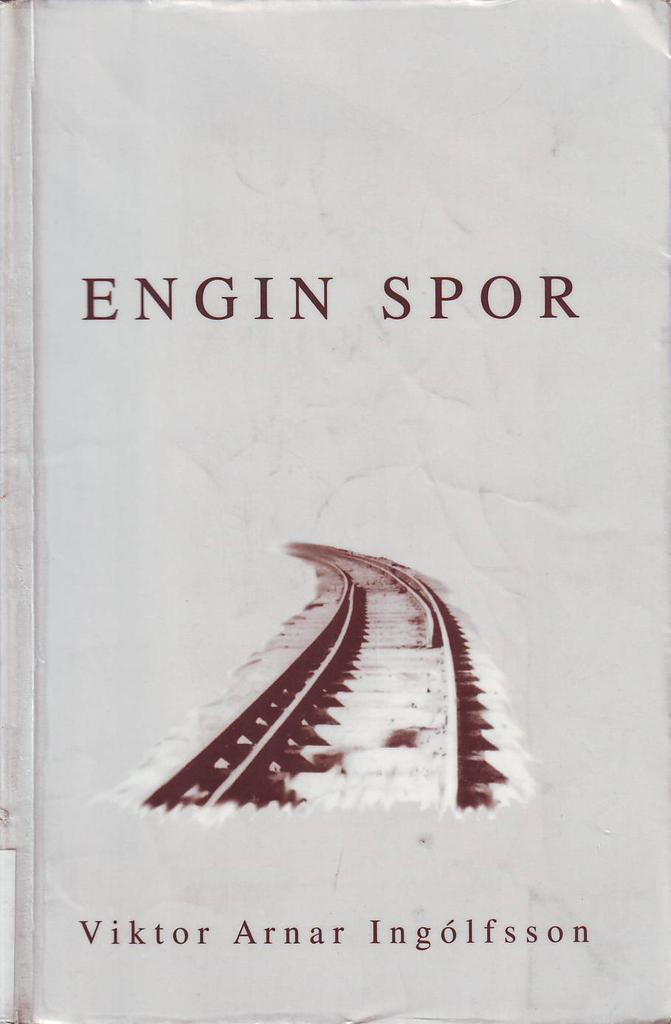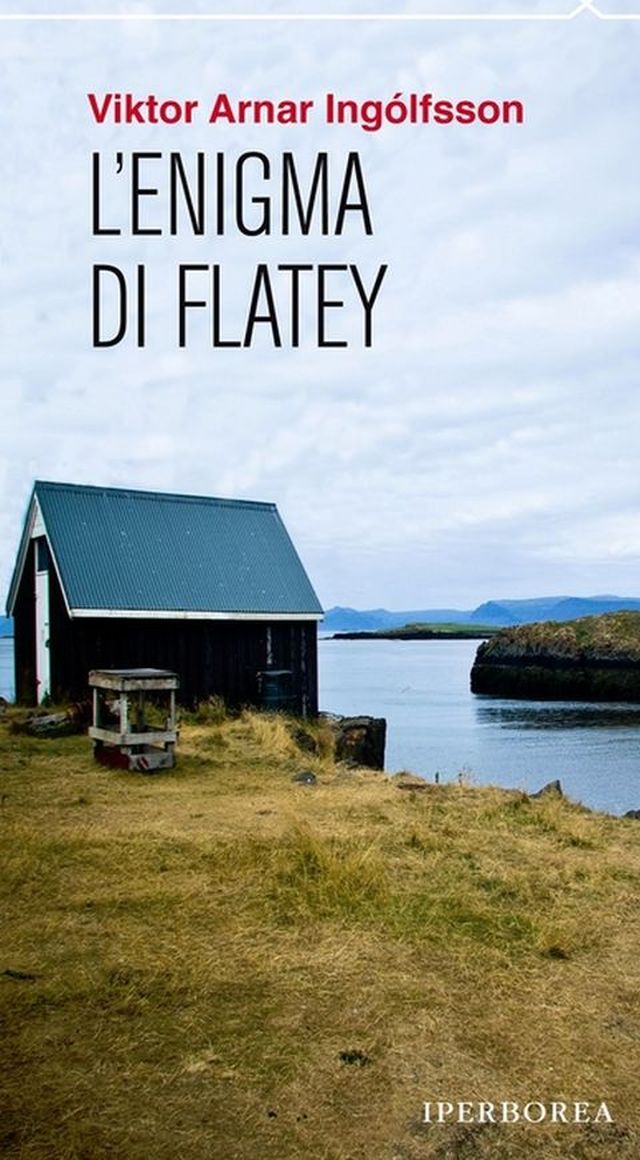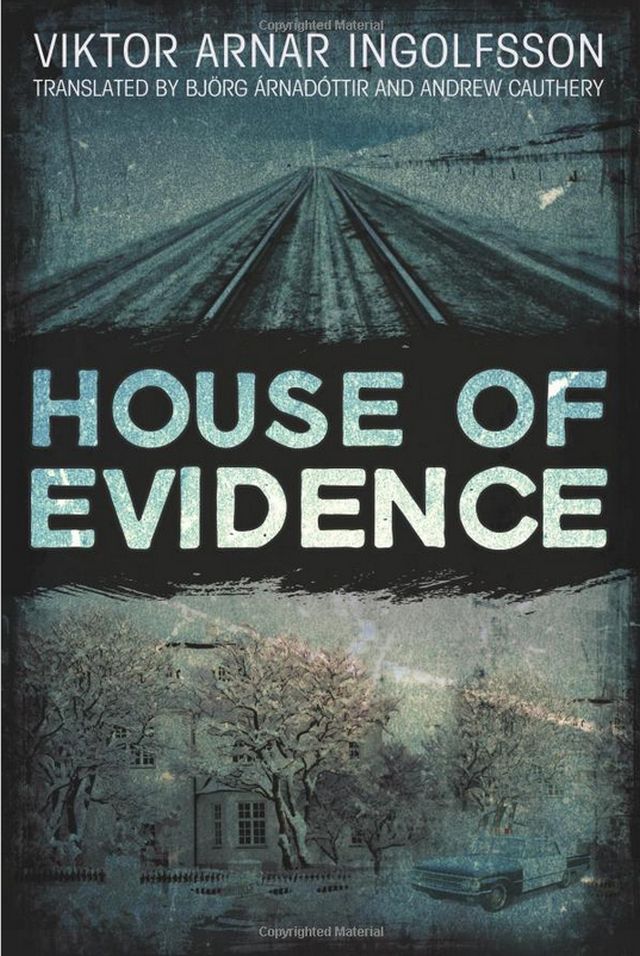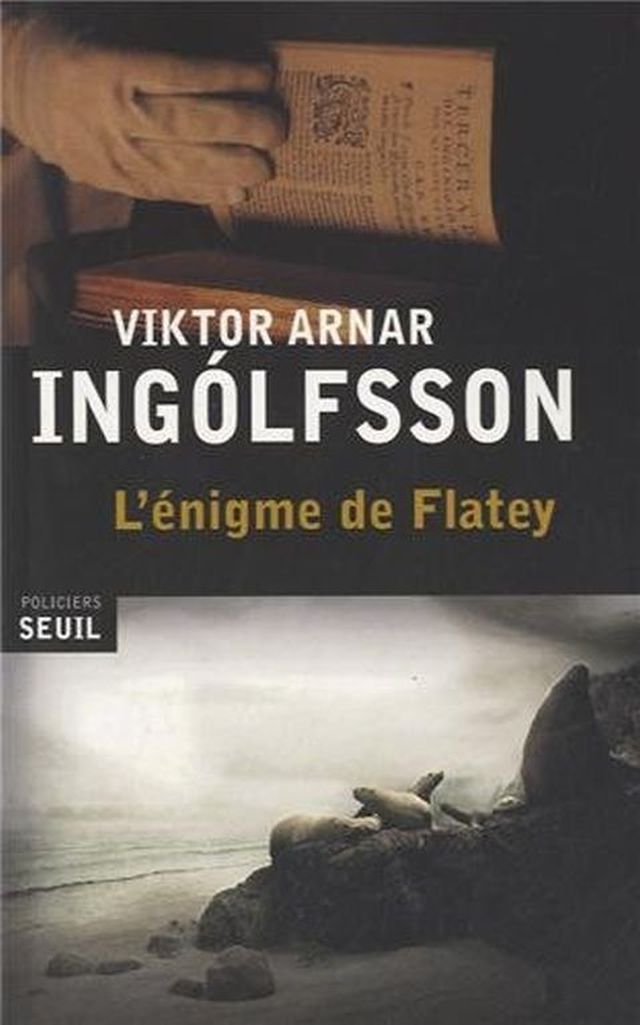The crime novel Engin spor by Viktor Arnar Ingólfsson, translated to English by Andrew Cauthery and Björg Árnadóttir.
Also published in e-book format by the same publisher.
About House of Evidence:
On a cold January morning in 1973, inside a stately old house in Reykjavik, blood pools around Jacob Kieler Junior from a fatal gunshot wound to his chest. Detective Jóhann Pálsson, an expert in the emerging field of forensics, is called to the scene and soon discovers something more unsettling than the murder itself: the deceased’s father, Jacob Kieler Senior, a railroad engineer, was shot to death in the same living room nearly thirty years earlier. The case was officially closed as a botched robbery.
Pálsson soon uncovers diaries that portray Kieler Senior as an ambitious man dedicated to bringing the railroad to Iceland no matter the cost. Sensing a deeper and darker mystery afoot, the detective and his colleagues piece together through the elder Kieler’s diaries a family history rich with deceit…
From House of Evidence:
He no longer felt pain.
Forty-eight-year-old Jacob Kieler Junior sat, legs outstretched, on the floor in the main parlor of Birkihlíd, leaning crookedly against the doorpost that led to the lobby. The wound in his chest bled incessantly. His gray knitted vest was soaked with the blood that poured down his body, forming ap ool on the wood floor beneath him. When Jacob moved the hand he was leaning on and it landed in the blood, he looked down in surprise. His breath rattled, and bloodstained froth was forming at the corners of his mouth. His expressionless face had become white and his gray eyes were half-closed.
He had fallen off the chair when the shot hit him. The pain had been unbearable at first, but as he crawled toward the telephone in the lobby to call for help, he became numb and lost the power of his legs.
The parlor, where Jacob now found himself, was a large room, more than a thousand square feet, with a high ceiling. In the middle of the floor to his left were three large, heavy, leather settees; to his right a bay with tall French windows and long, heavy drapes. He examined the German chandelier as if seeing it for the first time. There were twenty-eight bulbs in all. They were arranged in three wreaths, sixteen at the bottom, then eight, and finally four at the top. The light from each bulb was faint, allowing the chandelier's skillful craftsmanship and gilding to show trough.
He noticed the open office door at the far end of the parlor. The light had not been switched on in there, and intricate silhouettes appeared on the walls whee the light from streetlamps and the night's full moon shone through the windows between bare tree branches. Jacob could see the outline of the large desk in the pale light; it stood there, resolute, waiting patiently for a worthy master.
Through the office windows, he caught a glimpse of the house next door. It was completely dark and utterly silent.
Birkihlíd stands on a narrow street in Reykjavík's old district, to the east of Hljómskáli Park. Early in the century, well-to-do citizens had built their mansions at a polite distance from each other , but more recent residents had added garages and other extensions so now it was all much more cramped. The road, which had originally been intended for pedestrians and horse carriages, had been made into a on-way street with closely packed parking bays on both sides. Trees had been planted next to the houses soon after they were built; they had thrived, growing over many decades, and now towered above the streetlamps. In the summer their leafy crowns obscured the hosues and gardens, but at this time of year they stood bare.
Jacob looked through the open door into the dining room. The light was on in there, and he saw eleven high-backed stairs around the large table in the middle of the floor. This bothered him. The chair should be in its place. Jacob tried to get to his feet. He wanted to put the chair back where it should be, but he had no feeling below his chest, and the only movement he could manage was a feeble twitching of the shoulders. The larege clock that hung from the dining room wall gave a single chime, indicating half past one.
(1-2)
